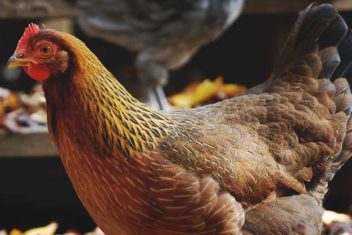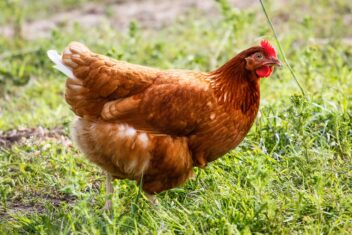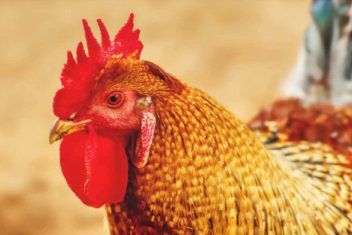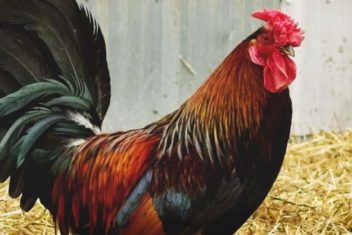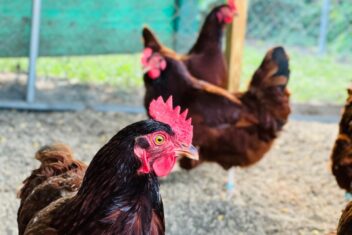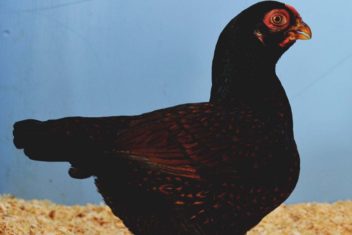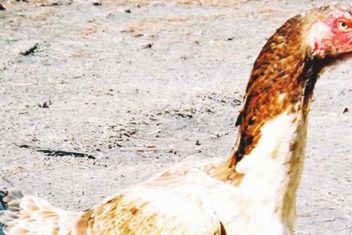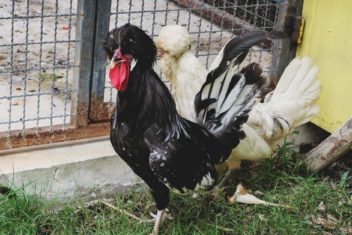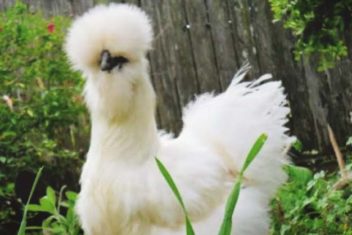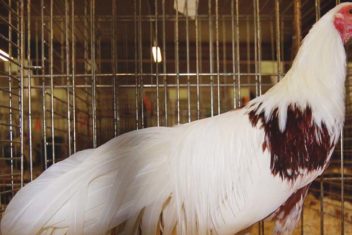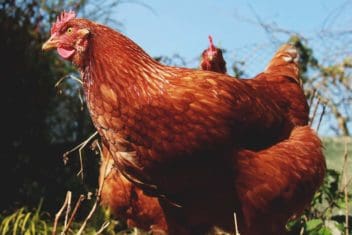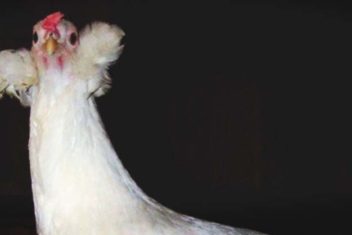If you’ve ever seen a Barred Plymouth Rock, Dominique Chickens may appear quite familiar. Despite carrying some similarities to the popular Barred Plymouth Rock, Dominiques have their own unique traits.
For the farmer interested in a productive, heritage breed that does well for both meat and eggs, Dominiques make an excellent pick.
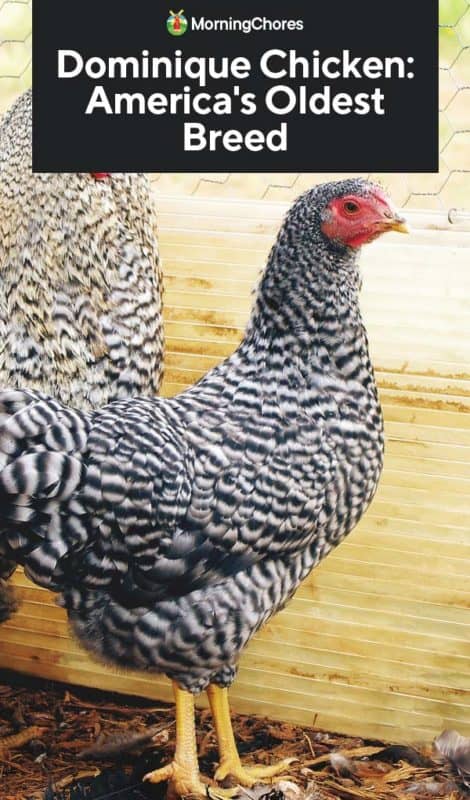
About Dominique Chickens
Sometime around colonial times, Dominiques likely made it across the ocean with the pilgrims. In the 1700s, Dominiques were quite popular, but they eventually gave way to the Barred Rocks, which originally stemmed from Dominiques. In 1874, Dominiques were recognized by the American Poultry Association and added to the Standard of Perfection.
Many people get Barred Rocks and Dominiques mixed up and believe the two are interchangeable. Dominiques were around before Barred Rocks and there are a few distinguishing characteristics. One easy way to tell the two apart is by looking at their comb types. Barred Rocks sport upright, single combs while Dominiques have smaller, squashed-looking rose combs.
Dominique Characteristics
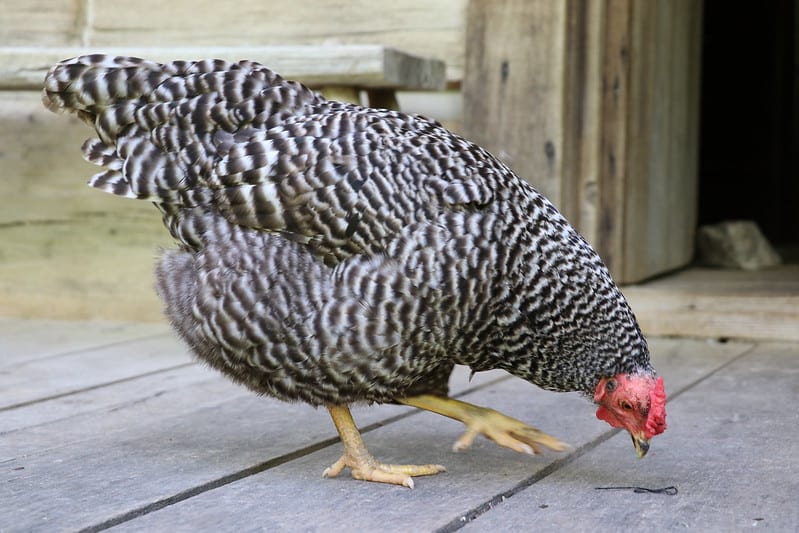
1. Size and Weight
Although Dominiques are classified as a dual-purpose breed, they certainly aren’t the largest dual-purpose bird around. Full-grown Dominique roosters come in at approximately 7 pounds. Hens weigh a bit less, tipping the scales around 5 pounds at full-grown weight.
2. Temperament
Dominique hens have very personable and charming temperaments that are sure to win you over. Another great thing about these hens is their excellent brooding and mothering qualities.
One thing that Dominique roosters are infamous for is their terrible temperaments. Dominique roosters have the reputation for killing small animals and attacking people constantly, so beware if you plan on adding these to your flock.
3. Egg Production
Dominique hens are highly praised for impressive egg production, producing around 250 light brown eggs per year. This is definitely a good breed to add to your list if you’re after an efficient egg producer.
4. Meat Production
Dominiques will produce a decent bit of meat, but not the maximum amount you could get from a dual-purpose breed. If you’re after the perfect 2-in-1 dual-purpose bird, Dominiques probably won’t produce quite enough meat to make them ideal. However, they’re large enough that extra roosters will be worth your time to process for the soup pot.
Caring For Dominiques
1. Feeding and Nutrition
If you’re raising Dominiques from chicks, you’ll want to get them started out on a good quality chick starter. Your growing birds will remain on this chick starter for the first 12-14 weeks of their life until it’s time to transition them to a laying feed. Laying flocks need to remain on a good diet of laying feed for the remainder of their productive lives.
If for some reason you find yourself with brittle or soft eggshells, calcium supplements should help correct this issue. You can supply calcium by providing oyster shells or crushed eggshells in a separate dish so that your hens can eat them as they are needed.
2. Housing and Fencing
Your flock of Dominique chickens will need a warm, dry, predator-proof chicken coop. Inside this chicken coop, provide 3-4 square feet per bird so everyone has plenty of room to live peacefully. For roost space, 12 inches per bird should be provided.
Outside, Dominiques will flourish in a free-range environment but will bear confinement if you don’t have the means to allow free-ranging. If you are keeping your birds in a run, 10 square feet is the minimum amount of space to allot per chicken.
3. Health Issues and Care
As with most heritage breeds, Dominiques are outstanding birds in the immune system department. Every chicken can get sick, but you don’t have to worry about especially weak immune systems with a breed like this.
External and internal parasites can bother any flock, and it’s imperative that they be handled immediately upon discovery. A chicken’s way of preventing external parasites is by dust bathing frequently, so make sure that you provide a good dust bathing area to help with prevention in this area.
4. Breeding
A heritage breed such as the Dominique would make a very interesting breeding project. According to the Livestock Conservancy, this breed has been placed on the watch list, which means their numbers may be dropping.
Something as special as America’s oldest chicken could certainly use some dedicated preservers so the breed is around for many years to come.
Dominique Breed Alternatives
1. Barred Plymouth Rock
It will come as no surprise that the Dominique’s doppelganger would be the top alternative breed for Dominiques. Barred Plymouth Rocks lay a bit more regularly than the Dominiques, which is saying something since the Dominiques lay so proficiently. If the aggressive rooster issue bothers you with Dominiques, you won’t have to worry about this with the Barred Rocks.
Did You Know?
Although today these birds are well known as Dominiques, Dominicker is also a name that applies to the same chicken. In olden days, these chickens went by many names, including Blue Spotted Hen, Old Grey Hen, Dominico, and Dominic.
This is a fun, heritage chicken that will provide your farm with plenty of eggs. Perfect for a homesteader that appreciates sustainability and practicality, the Dominique is your bird!

